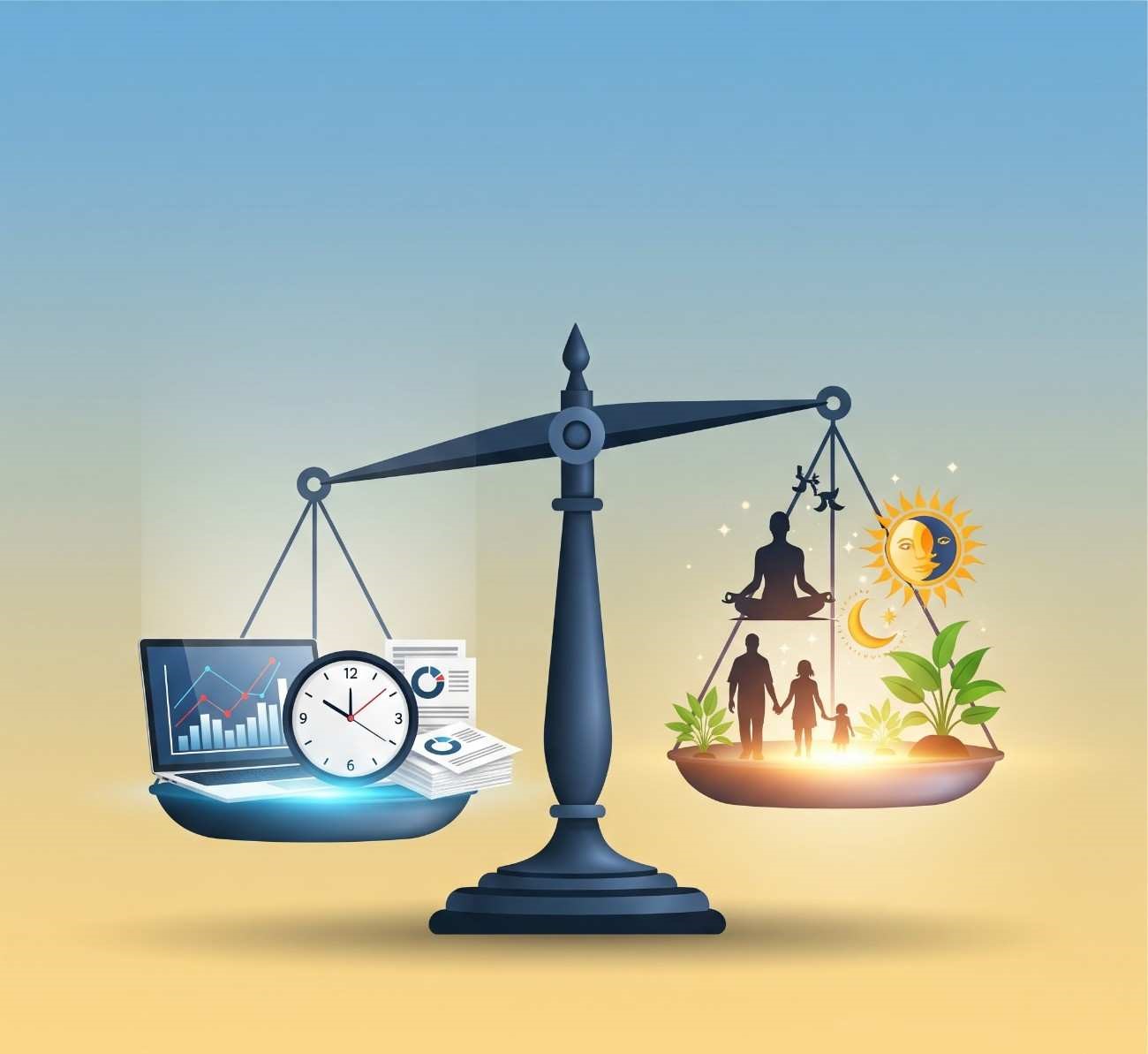In today’s fast-paced world, the line between work and personal life often becomes blurred. With remote jobs, constant notifications, and high career expectations, many people find themselves overwhelmed and drained. Maintaining a balance between professional responsibilities and personal well-being is not just a luxury—it’s essential for a healthier, happier, and more productive life.
This blog will guide you with practical, realistic tips to achieve that balance and regain control of your time and energy.
🌱 Why Work-Life Balance Matters
Work-life balance is not about splitting your day equally between job and personal life—it’s about making time for the things that truly matter. Poor balance often leads to:
- Burnout and chronic stress
- Strained relationships
- Decline in productivity and creativity
- Health issues such as anxiety, fatigue, or insomnia
On the other hand, a good balance helps you feel more fulfilled, motivated, and mentally strong to handle challenges.
✅ Practical Tips for Balancing Work and Personal Life
1. Set Boundaries with Work
One of the biggest challenges today is being “always available.”
- Define your work hours clearly.
- Avoid checking emails or messages after office hours.
- Politely communicate your availability to colleagues and clients.
👉 Remember: Saying “no” when necessary is not being rude—it’s protecting your peace.
2. Prioritize Tasks Using the 80/20 Rule
Not everything on your to-do list deserves equal attention. The Pareto Principle (80/20 rule) states that 80% of results come from 20% of efforts.
- Focus on high-impact tasks at work.
- Eliminate or delegate unnecessary tasks.
- Apply the same principle to personal life—invest in meaningful activities instead of trying to do everything.
3. Schedule ‘Me-Time’ Without Guilt
If you don’t recharge yourself, you can’t give your best to work or family.
- Exercise, meditate, or read for at least 30 minutes daily.
- Treat hobbies as important appointments.
- Spend quality time with loved ones without multitasking.
This “me-time” helps reduce stress and improves focus.
4. Learn to Disconnect Digitally
Constant notifications are one of the biggest distractions.
- Put your phone away during meals, family time, or before sleep.
- Use apps to block social media during work hours.
- Practice “digital detox” at least once a week.
Being present in the moment makes personal life more meaningful.
5. Communicate Openly with Family and Employer
Work-life balance is not just your responsibility—it also depends on understanding from both sides.
- Be honest with your employer about workload and deadlines.
- Share your challenges with family so they can support you.
- Ask for flexibility when needed, especially in tough times.
6. Use Time Blocks for Better Productivity
Instead of multitasking (which often lowers efficiency), use time blocking:
- Divide your day into chunks—work, personal errands, rest, family time.
- Stick to the schedule as much as possible.
- Add buffer time for unexpected tasks.
This method keeps your day structured and less stressful.
7. Take Care of Your Health
Your mind and body are the engines that drive your productivity.
- Eat balanced meals, avoid excess caffeine or junk food.
- Exercise regularly, even a 20-minute walk helps.
- Maintain a healthy sleep schedule (7–8 hours).
A healthy body improves focus, energy, and mood.
8. Set Realistic Expectations
Don’t compare your life with others on social media. Everyone has different challenges and priorities.
- Accept that you can’t do everything perfectly.
- Celebrate small wins—finishing work on time, spending time with family, or even just resting.
- Progress is more important than perfection.
9. Take Short Breaks During Work
Working nonstop drains creativity.
- Use the Pomodoro Technique (25 minutes work + 5 minutes break).
- Step away from your desk to stretch or hydrate.
- Short breaks refresh your brain and improve output.
10. Seek Professional Help if Needed
Sometimes imbalance leads to serious issues like depression, chronic anxiety, or relationship breakdowns. Don’t hesitate to:
- Talk to a therapist or counselor.
- Join support groups.
- Read guides and ebooks on self-improvement and stress management (like the ones on My Life My Guide).
🌟 Final Thoughts
Balancing work and personal life is not a one-time achievement—it’s an ongoing process. Start small by setting boundaries, prioritizing wisely, and dedicating time for yourself and loved ones.
Remember, a truly successful life is not just about career achievements, but also about inner peace, meaningful relationships, and personal growth.
If you’re looking for deeper strategies on stress management, productivity, and self-growth, explore our ebooks at My Life My Guide—they are designed to help you face real-life problems with practical solutions.



